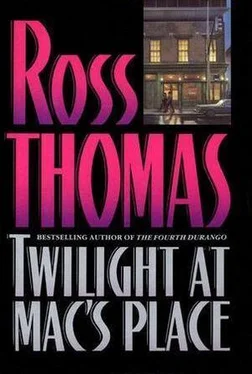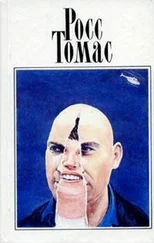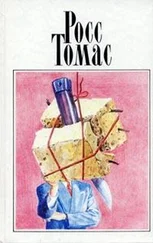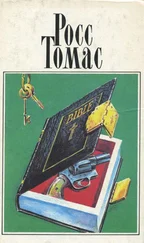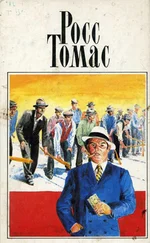Having spent much of his adult life in hot countries, Burns detested snow, which he equated with famine, flood, plague, earthquakes and other natural disasters. As he slogged down the slope, cursing the white stuff, he noticed someone in a skiing outfit come out of a town house that was almost at the end of the cul-de-sac. After shouldering a pair of skis, the skier began plodding up the slope.
Burns noticed that the skier wasn’t very tall, no more than five-nine or — ten, if that, and was so masked and bundled up that the only distinguishing features were the lack of them. When they were almost abreast, Burns smiled and asked, “Know which house Mr. Undean lives in?”
The skier replied with a headshake and trudged on. Burns growled, “Thanks a lot, friend,” and resumed his inspection of the house numbers. When he found the one he was looking for, 12430, he realized it was the house the skier had just left. It was then that Burns, ever wary, almost turned and went back to his Wagoneer.
But because he had driven for nearly two hours on unfamiliar, snow-slick highways, most of them with only two lanes open to crawling traffic, Burns decided he should at least ring the doorbell to see who answered it. He rang it six times at ten-second intervals. When there was no response, he tried the doorknob. It turned and Tinker Burns went inside.
Through a glass door that led to the loggia he could see a fireplace, a redwood picnic table, the attached dock and, beyond that, the frozen lake. Burns stamped the snow off his boots onto the pebble-studded concrete floor, making as much noise as possible. But when no voice called down, demanding to know “Who’s there?”, Burns shouted up the staircase, “Hey, Undean! Anybody home?”
The answering silence increased Burns’s wariness. As he climbed the two flights of stairs, his wariness also mounted and, by the time he reached the third-floor landing, it had turned into trepidation. Panting slightly from the climb, Burns entered the master bedroom, found nothing, left it, walked slowly down the short hall and into the book-lined office-study, where he found Gilbert Undean dead on the floor.
After squatting down to make sure Undean was really dead, Burns rose and looked at his watch. It was exactly noon. He picked up the telephone on the oak desk, called the Willard Hotel and asked for Granville Haynes. Burns let the hotel room phone ring eight times before he broke the connection and called Mac’s Place. There the call was answered on the first ring by Karl Triller, the bartender, who said, “We’re not open yet.”
“Karl? Tinker Burns. I—”
Interrupting, Triller said, “Hold it a second, Tinker.”
Burns could hear Triller’s slightly muffled voice talking to someone. “Okay, here’re the car keys. When I get off the phone you guys get one bloody mary each but that’s the absolute limit.”
Burns heard some kind of protest, also muffled, which he couldn’t make out. And then came Triller’s normal voice. “Yeah, Tinker?”
“I need to find Granny Haynes because it’s an emergency and I don’t need any of your usual dumb questions.”
“What kind of emergency?”
“The bad-jam kind, asshole.”
There was a long pause — which anyone but Burns might have taken for a hurt silence — before Triller said, “Try Padillo,” recited a telephone number and hung up.
Burns tapped out the number which Padillo answered on the second ring with a neutral hello. “It’s me, Tinker. And I need to talk to Granny Haynes.”
“Why all the hard breathing?” Padillo said.
“I’m standing next to a dead body.”
“I’ll put him on.”
Burns heard an extension phone being picked up just as Haynes came on the line with a question. “Whose dead body?”
“Gilbert Undean’s. One neat shot to the head. Small caliber. In his house out in Reston.”
“You shot him or found him?”
“Found him.”
“What were you doing at Undean’s?”
“I was going to talk to him about Steady’s book.”
“Why would Undean know anything about it?”
“You saying he didn’t?”
“I’m not saying anything, Tinker. It’s your dead body. Your second one in three days.”
“Okay, right, it’s mine and I’m calling you because I may need a lawyer and thought maybe I oughta get what’s his name that Steady had.”
“Howard Mott.”
“Yeah. Mott.”
“No chance of walking away from it?”
“I already made three calls on Undean’s phone.”
“You’re fucked then.”
“I already know that, Granny. Now gimme Mott’s number.”
Haynes recited Mott’s home number only once and Burns said, “Now lemme talk to Padillo.”
“You’re out in Reston?” said Padillo when he came back on the line.
“Right.”
“Okay. That’s Fairfax County. Dial 911 and tell whoever answers your name, the address and that you’ve found a dead body. Then hang up and call your lawyer. In fact, you’d better call him first.”
“Christ, you’re making it sound like I got something to worry about.”
“Tinker, the D.C. and Fairfax County cops are going to climb all over anybody who finds two dead bodies in three days. So keep your mouth shut until your lawyer gets there.”
“You don’t think I oughta tell them how I saw the hitter coming out of the dead guy’s house wearing a ski mask, dark glasses and carrying a pair of skis over one shoulder?”
There was a long silence until Padillo said very softly, “I really wish you hadn’t told me that.”
Burns chuckled. “That’s what I figured you’d wish.”
Seated in leather armchairs before three blazing pine logs that occasionally spat and hissed at the fire screen, McCorkle and Padillo resembled nothing so much as a pair of senior club members listening with mild interest to a younger member’s account of the so-so polo match he had just witnessed.
What they were actually listening to was Granville Haynes’s theory of how his dead father and the equally dead Isabelle Gelinet had conspired to sell Steadfast Haynes’s nonexistent memoirs for large sums.
“Sums?” McCorkle said.
“Steady would’ve figured out how to sell them more than once.”
“And Isabelle?” Padillo said.
“If she and Steady were working a con, and if Isabelle decided to solo on after he died, she could’ve made some basic mistake. Steady was always very cautious, very secretive, and he might not’ve told her what step two was. So it could be that Isabelle skipped from step one to step three, missed step two, tripped, fell and drowned.”
Padillo rose, looked at his watch, saw it was 12:32 P.M. and asked, “Who wants a drink?”
Both Haynes and McCorkle asked for Scotch and water. Padillo turned and headed for the small dining room that was really an extension of the living room. To the left of the dining room was the kitchen and, beyond that, the tiny snow-covered backyard. The yard was divided between a ten-by-twelve-foot garden, in which Padillo grew roses and basil, and a one-car alley garage, in which he kept his 1972 Mercedes 280 SL coupe.
His small white brick Foggy Bottom row house sat on a thirty-foot lot and would have had a flat front were it not for a bay window that McCorkle said made it look seven months pregnant. The house had two bedrooms and a bath upstairs. Downstairs were the living and dining rooms, kitchen, a half-bath and another flight of stairs that led down to the full basement, where there was a regulation Brunswick snooker table, at least sixty years old.
The snooker table had come with the house and nobody remembered how it had made it down the stairs and into the basement that also contained the furnace and a washer and dryer. The basement was a place Padillo tried not to visit more than three or four times a year.
Читать дальше
